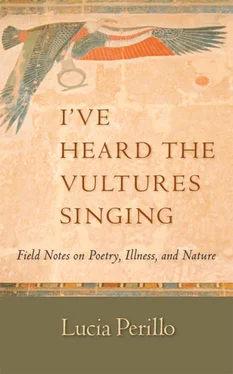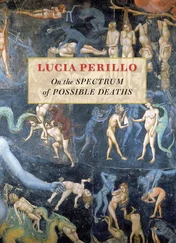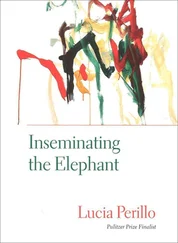The trip home was uneventful. Angus must have been even colder going down. At one point, as we drove the mountain road, the summit of Mount Rainier appeared through a hole in the clouds, a sight we had not seen all day. But when we pulled over, Angus signaled wearily for us to drive on. And a few days after our trip, he told me that as he shined the bike’s pipes and tightened its bolts, he realized he’d become indifferent to it. The motorcycle was just a surrogate, he realized, when what he really wanted was a woman.
(Sure enough, by the time I edit this, the woman is found and the bike is sold.)
As for Marianne Moore, I was surprised to read that on her second trip west she didn’t even go to Mount Rainier. The mountain wasn’t what she wanted, though I don’t understand it — how a healthy woman could not want the mountain. But she was content to study it from a rented cabin sixty miles away as she devoted herself to the geography she was most passionate about, which was the landscape of her poem.
Because I grew up while Vietnam burned, outside the garden walls of my young brain (a lot of hormone molecules in there, with carbon chains tangled like vines), I’m embarrassed to admit that for a while I was a cheerleader in high school. By chance I’d discovered I was good at jumping with my spine bent in an unnatural curl — people gasped at its severity. This caused me to experience, for the first time, the head-rush that results from getting admiration from one’s peers, a feeling that is not wholly pleasant to me, yet I have repeatedly chased after it.
We wore home-dyed panties underneath our skirts, their washed-out green color inspiring some magical thinking that they were not underwear after all. Once I absentmindedly jumped in plain white ones — to hoots and giggles. For the rest of the practice session I only simulated the jumps by rising from a squat in a bizarrely constrained way, swiveling one saddle shoe in a frogish kick.
To raise money for new wool jumpers, Miss Cropsey decided that we would sell Christmas candles, little votives whose holders were covered in red or green velvet with fake pinecones attached. We all received a box of samples and an order form: we were to lug the box from door to door. The road in my neighborhood was winding, its houses far-flung gothic structures in many of which I had never spied a human form. This absence left me free to imagine who lived there. And since the very idea of salesgirlship fueled my apprehensions, I drew customers from my worst dreams. I feared they’d take it as an insult if I tried to fob Christmas off on them. Their celebrations probably featured a goat instead of Jesus.
Indeed, the hags and warlocks were not interested in my wares (actually the only people I made contact with were cleaning ladies), and after some halfhearted dragging of the sample box along our desolate suburban road, I brought it home and stored it in the closet, from which it spoke from time to time as the weeks went by. It sat in the closet’s must and dark until the due date came for the order form, when my mother bailed me out by ordering three of each style of candle. And so for the remainder of the time I resided with my family, my failures were dug out each year and used to decorate the house. Over the years the velvet snagged more and more dust, until the merry colors turned to gray.
This is how it goes for introverted kids — whether we’re talking Christmas candles or Girl Scout cookies. Now when I see the Scouts staged at the post office exit, I wince on their behalves, though I notice that these days there is always a parent dispatched to mastermind the ploy. The adult launches the girls toward likely marks after having whispered come-ons into their ears. This sort of shilling works because it is embarrassing to all involved, and we’ll gladly pay the bribe so as to suffer through only its briefest form. And usually there is one girl who hangs back, clearly ashamed of the commerce in whose service she’s been charged to lend her body.
She is the one I buy my Thin Mints from.
What I really want to talk about is my attempt to sell my book of poems, an art form I’ve been practicing for long enough now that I can’t really speak of humiliation memories but rather. . what? Humiliation loci? Nodules? What I mean is that humiliation turns into an ongoing, inhabited state because writing itself is of this nature. It’s the flagrant narcissism that’s so humiliating — writers think their creations are worthy enough to be circulated and admired; they secretly harbor the pride of new parents who are annoying in their certainty that, out of all the universe forged by procreation, their own child rises above the rabble. Then print serves to cast one’s vanity in cement.
This is why some writers, like Emily Dickinson, avoided publication, which she famously called “the Auction / Of the Mind of Man.” She left her poems in a drawer, but only after meticulously copying them out and sewing them into pamphlets. That such care went into their presentation suggests she was carefully orchestrating her legacy — and that her ego was big enough to lead her to assume that she would have a public legacy. Though she withdrew from the world, her arrogance was still stupendous.
Dickinson’s lines announce that she pooh-poohs publication — or at least assumes the pooh-pooh pose — so as not to be soiled by poetry’s commercial aspects. For even if no money changes hands, the poet incurs a debt through publication. Publication is an anti-barter, a negative exchange, so eager are poets (Dickinson included, at least early in her writing life) to be published that we are willing not only to give away our work for free but also to become beholden to whoever will disseminate it. The Internet has lately democratized this transaction by making publication available to all. This shifts the poet’s debt from publisher to reader, the desire for publication being easily satisfied. Instead, we are in debt to the reader’s time and attention, more than ever now that the whole world is reciting round the clock via weblogs and electronic “zines.”
In Dickinson’s day, poems would appear in the local paper — they were not just the froufrou artifacts of a fringe subculture. But no longer is poetry considered an appropriate companion to the spooning-up of oatmeal, and poets receive many signals from many different quarters that their work is trivial. More correctly, I should say that, though some types of poetry are bestowed with a large value by our present culture (I’m thinking of popular song lyrics and the spoken words we could corral under the heading of rap) (of course there will always be debate about whether these forms qualify) (I mean qualify as “literature” though I don’t know exactly how I personally would draw the Venn diagram for the sets “poetry,” “literature,” and “song”), what has lost its cultural worth is the kind of print- and page-directed arrangement of words that expects a sustained engagement from its reader. When this kind of poem is read out loud in bookstores or college lecture halls, the environment created is unlike any natural one except maybe a Unitarian church service.
If looked at without any romantic attachments to the art, one might say that this kind of poetry has a negative value in the esteem of most citizens. Were even the most idiotic reality TV show to be interrupted by a public broadcast of T. S. Eliot reading The Waste Land (recently voted — by poets — the greatest poem in English of the last century), mayhem would ensue. I’ve seen many eyes glaze over when some festivity is kicked off by the public reading of a poem, and even members of my own family will not come to hear me read. To be charitable, let’s say they stay away because they’re afraid I’d bore them, and they do not wish to break my heart by drifting off to sleep.
Читать дальше











![Various - Birds and Nature, Vol. 12 No. 5 [December 1902]](/books/745517/various-birds-and-nature-vol-12-no-5-december-thumb.webp)
![Various - Birds and Nature Vol. 11 No. 2 [February 1902]](/books/745533/various-birds-and-nature-vol-11-no-2-february-1-thumb.webp)